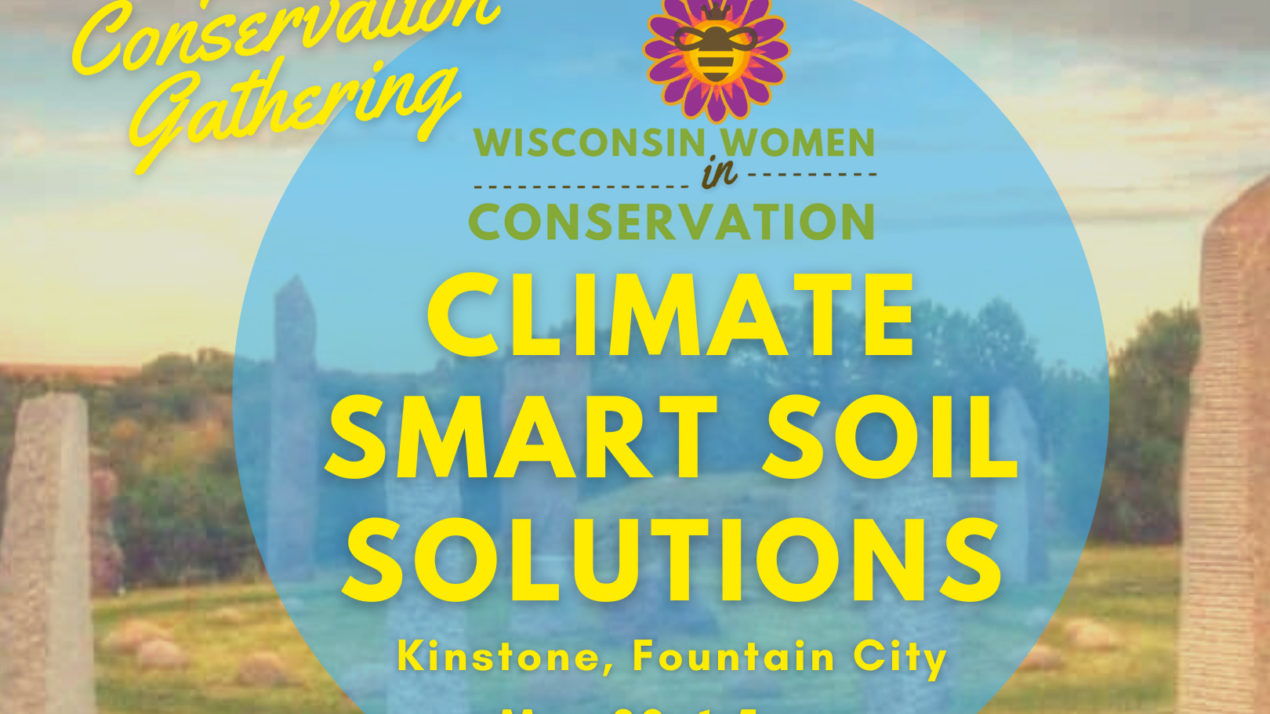
Wisconsin Women in Conservation is hosting a Climate Smart Soil Solutions education and networking gathering at Kinstone in Fountain City on Friday, May 20 from 1-5pm.
The event is FREE and open to all women farmers, landowners and conservationists. Snacks are included. There will also be an opportunity to test water samples. Registration is required: WiWiC.org
Building healthy soil in an increasingly challenging environment is a high priority for women landowners in Wisconsin. This event will connect women landowners, farmers and conservationists with local conservation professionals, organizations and agencies. The group will delve into climate-smart practices that sequester carbon, reduce greenhouse gas emissions, and mitigate the impacts of climate change, while building resilience to strengthen farm operations and rural properties.
Experts will discuss best practices that will help build soil, increase water storage, and improve aggregate stability and infiltration, and demonstrate what to look for to determine if your soil is healthy, with hands-on soil samples.
Presenters at the event will be Jaime Kraklow and Kristin Foehringer, soil health specialists with USDA’s Natural Resource Conservation Service in Altoona, and Kristine Beck, the founder of Kinstone.
“By working with NRCS and other conservation agencies, women can learn how best to protect the natural resources on their land as well as combat climate change,” says Kraklow. “Practices such as conversion from cropland to rotational grazing, incorporating cover crops and no-till, and improving wildlife habitat – along with many more! – can all work towards mitigating the effects of climate change while rebuilding your resources.”
All women farmers, landowners and conservationists from Pierce, Pepin, Buffalo and surrounding counties are welcome to attend. Time will be allotted for building networks and exploring the grounds.
“I am really looking forward to the event at Kinstone because talking about soil health while sitting in your living room is so different from being in person – seeing the difference, smelling the difference, feeling the difference in your own hands,” says Sara George, farmer and WiWiC Regional Coordinator. “Learning about the health of the soil and how it impacts your land, the food grown and the water we drink is important. I hope women can bring the data they learn during this event back home and they begin implementing soil health practices that will help for many generations.”
Attendees may bring small samples of water from any source (tap water, livestock waterer, pond) and learn how to test for nitrates.

